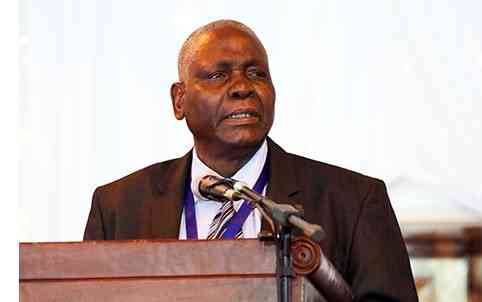
BY STYLE CORRESPONDENT Marvel Act Youth Organisation (Mayo) on Thursday joined the African continent in commemorating the Day of the African Child.
The day was commemorated under the theme Eliminate Harmful Practices Affecting Children: Progress on Policy and Practices since 2013 under Article 31 and 32 of the African Charter on the Rights and Welfare of a Child.
The Day of the African Child is commemorated every year in remembrance of the Soweto Uprisings of 1976 where children were massacred after protesting for their educational rights.
The act by the apartheid regime was contrary to civil norms and hence the theme Eliminating Harmful Practices Affecting Children: Progress on Policy and Practice since 2013. Laws, policies, bills and amendments of these have been made and the African Child continues to suffer.
“As we commemorate this day, we need to take stock of what has been done with regards to the adoption of policies and practices and what more needs to be done to effectively eliminate harmful practices affecting children in Zimbabwe, especially in the marginalised areas, Africa and the global world,” said Mayo director Abel Mavura.
“Progress has been made in adopting policies towards the elimination of harmful social and cultural practises that affect children.
“Zimbabwe is not excluded, but as Mayo we urge the government of Zimbabwe to discourage any custom, traditions cultural or religious practices inconsistent with the rights enshrined on Article 1 (3) of the African Charter on the Rights and Welfare of a Child.”
Mayo field officer Patience Faranisi said: “As we mark this day, l will acknowledge the recent Zimbabwe’s Constitutional Court ruling that increased the legal age of sexual consent from 16 to 18 years old.”
- Chamisa under fire over US$120K donation
- Mavhunga puts DeMbare into Chibuku quarterfinals
- Pension funds bet on Cabora Bassa oilfields
- Councils defy govt fire tender directive
Keep Reading
“However more is needed to be done in accelerating legal and policy reform in the fields of child justice, child protection, marriage and cybercrime.
“I believe this effort will ensure that violence, abuse and discrimination of girls is quickly recognised.”
Faranisi said across the globe, many girls and boys fall victim to harmful practices, including, early and forced marriages, teen pregnancies, child abduction, child labour, child abuse, drug and substance abuse, breast ironing, forced feeding, polygamy as well as virginity testing, among others.
“The list is endless and this happen across cultures, religions and countries. How long shall we suffer?” she asked.
“If we coordinate among ourselves across sectors and at different levels, and if we work together, we can eliminate all the harmful practises.”
Faranisi said some people defend harmful practices in the name of culture, religion or tradition.
“We believe the right to culture and freedom of religion cannot limit the fundamental right to equality and non-discrimination,” she said.
Mavura said through advocacy and awareness programmes, Mayo was working toward a world where women and girls are protected from harmful practices by the law.
“We push for societies and the nation at large to be accountable in line with their obligations, and ensure they enact and effectively implement laws that prohibit harmful practices,” he said.
“To end harmful practises, works across the world should be done to increase global knowledge of the problem and political commitment to end child marriage.
“There is need to develop and support implementation of appropriate laws and policies, support community-level transformation of social norms and practices, empower women and girls to express and exercise their rights, increase access to quality prevention, protection and care services.
“Increasing government ownership over relevant programmes and efforts and give access of education to every child is critical.”
Mavura said Mayo was advocating for change through social media campaign awareness and theatre, among others.
“We believe that only by working together will we achieve the legal and systemic change needed to address violations of human rights and fundamental freedom in order to eliminate harmful cultural practices that affect children and young people from realising their dreams,” he said.
Mayo Zimbabwe is a youth and women-focused non-governmental organisation that seeks to contribute to the development and empowerment of young people in marginalised communities, eradication of poverty, injustices, conflicts, violence through advocacy for equality, child, youth and women’s rights.
The organisation is devoted to bringing social change and developing marginalised communities through various developmental initiatives, and theatre is the medium we use to engage communities and communicate various social ills.
It subscribes to the principles of the right to information, knowledge and skills on the prevention of violence and conflicts.
To add on, child rights and education is one of the fundamental programmes of the organisation.










